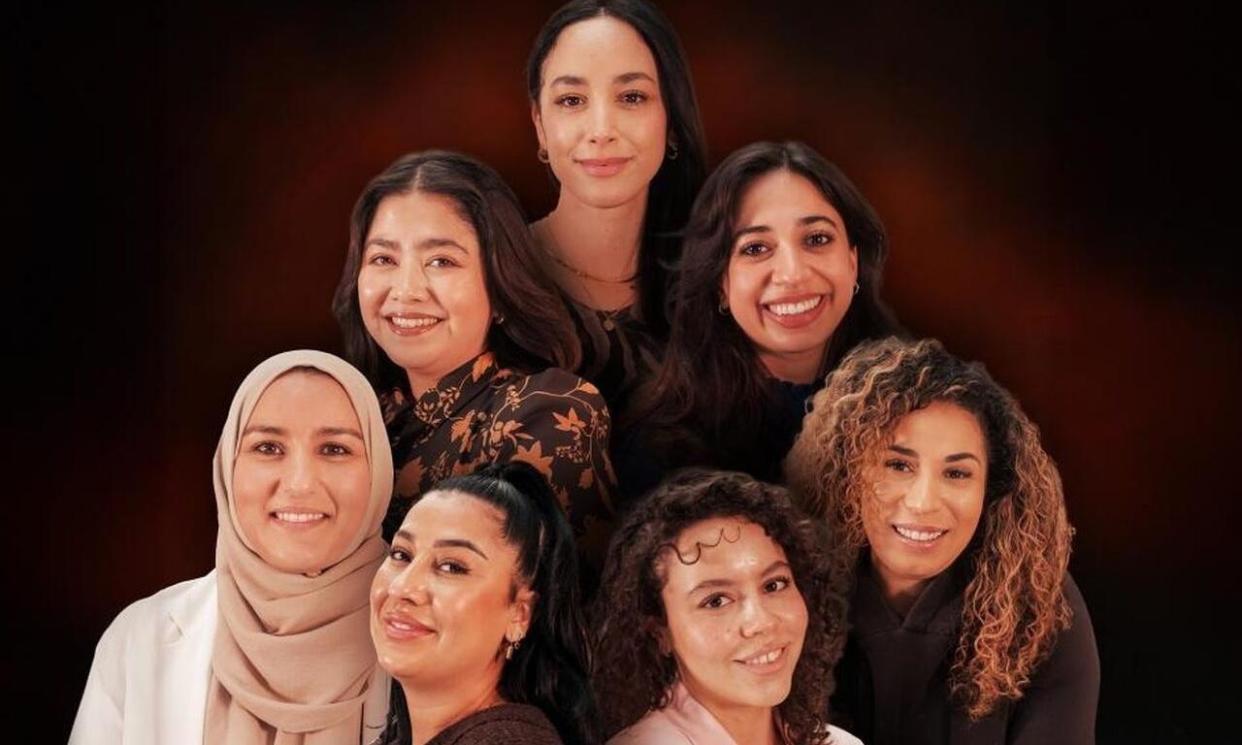‘Not even water?’: Ramadan radio show demystifies Dutch Muslim life

An hour before dawn in a nondescript building in Hilversum, a sleepy town half an hour south of Amsterdam, Nora Akachar grabs the microphone. There is nothing unique about a radio host summoning the nation out of its slumber. But this is, in her own words, “a big deal”.
The Dutch Moroccan actor turned radio host is live on air presenting Suhoor Stories, a talk radio show presented by seven Dutch Muslim women, inviting Muslim guests to demystify Ramadan for the wider public. The programme is believed to be Europe’s only daily Ramadan radio and television show aired by a national public broadcaster.
Akachar’s voice reaches into cars and homes across the Netherlands, “for anyone who is awake, going to work, or eating suhoor, a meal eaten before dawn to mark the start of a Ramadan fast.”
The show’s all-female lineup is Akachar’s rebuke to long held stereotypes about Muslim women: “We have agency and we’re rewriting stories our way.”
Related: Ramadan around the world – in pictures
More than anything, it is an opportunity for greater understanding in a country rocked last year by an election victory for the anti-Islam far-right Freedom party (PVV), led by Geert Wilders.
Hitting the airwaves amid ongoing post-election wrangling over the formation of the next government, Suhoor Stories has gained importance, not just in centering Muslim voices in the national narrative – but carrying them as a lighthouse of resistance.
“It’s difficult right now in the Netherlands,” said Akachar. “What did I ever do wrong? I always try to be kind. And then 2.5 million people went and voted for Geert Wilders. I probably know some of those people.”
Suhoor Stories delves into current affairs through the lens of ordinary Muslims: an entrepreneur making halal sausages, or a Dutch language teacher turned spoken word performer. There is a blend of nostalgia and inspiration, too. Guests share memories of, and recipes for, suhoor.
The show invites guests to dismantle the “silly questions” Muslims frequently get asked during Ramadan. “Not even water? It’s still a question!” said Akachar.
An average of 160,000 listeners tune in each morning, ranging from the metropolitan to the rural. The show receives derogatory, sometimes “racist” comments, from which producers try to shield presenters. Criticism has sometimes come from close quarters, with some Muslims suggesting Akachar should be “praying and pondering at home instead”.
The Netherlands Public Broadcasting show has, on the whole, been widely praised for breaking new ground in publicly funded media. “Everybody speaks the language of food, nostalgia and current affairs. That should be unifying,” said Akachar.
The theatre actor and movie producer is all too familiar with the longstanding demonisation of immigrant families living in the Netherlands. Born in Morocco, she said it was hard to ignore perpetual stigmatisation of Muslims in the media landscape, one that shapes them as “predators or criminals” on screens. She starred in the successful Dutch television series Mocro Maffia, criticised by some for its generalised negative portrayal of the Moroccan population.
It is an image that Akachar hopes to change, which is where the radio show comes in. For too long, societal problems such as terrorism or crime have been told from “the white lens”, she said, ignoring the lived experience of communities stigmatised by those very acts.
“Film directors love to make me ‘the Muslim woman who had to fight back from the way she was raised’. No more. I’m the one who’s telling my story. Those stories you create are over,” said Akachar.
Akacher is producing a documentary, to be aired this summer, showcasing the lives of queer Muslims to fight the perception that Muslims are intolerant of LGBTQ+ people.
She appears constantly on the front foot, full of energy despite her Ramadan fasting. But even for this optimist, who persuaded one of Europe’s biggest broadcasters to take a punt on a show, weaving counter-narratives is tiring.
“We’re sending a message because we have to fight on so many levels. We’re getting tired of saying that we’re good people,” she said.


